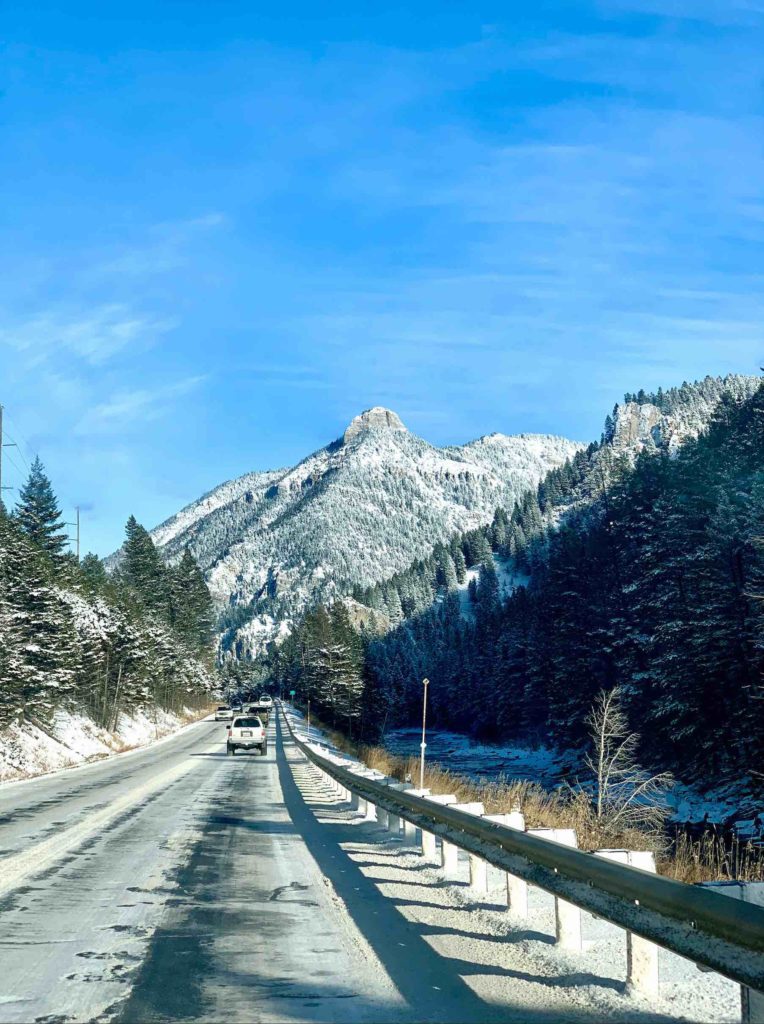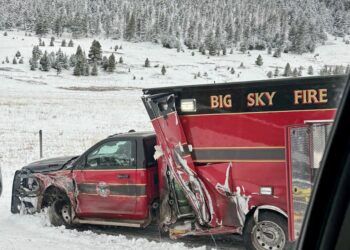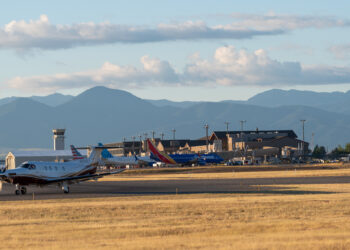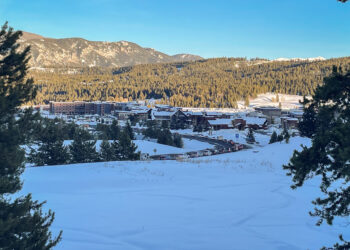Local organizations launch carpool incentive program
By Gabrielle Gasser ASSOCIATE EDITOR
BIG SKY – A local organization is partnering with a carpooling platform to launch a monthlong incentive program for commuters driving from the Gallatin Valley to Big Sky.
The Big Sky Sustainability Network Organization is utilizing GoGallatin, a tool for individuals and groups to develop transportation solutions, to start the Big Sky One Less Car Program that will run during March. The program, funded by a Yellowstone Club Community Foundation grant awarded in February, offers $15 gift cards to commuters who carpool at least four times in March and log their trips on the GoGallatin platform or Commute Tracker app.
According to data from the U.S. Census Bureau’s OnTheMap resource, approximately 77 percent of Big Sky’s workforce lives outside of the area but is employed in Big Sky.

Last year, Big Sky SNO released a Community Greenhouse Gas Inventory which found that about a third of Big Sky’s total emissions are transportation related. Lizzie Peyton, community engagement director with SNO, said that in identifying action items she met with Matthew Madsen, research associate at Montana State University’s Western Transportation Institute, to discuss sustainable transportation solutions.
Peyton and Madsen, who was also armed with data from a recent qualitative transportation study completed by an MSU graduate course, have been ironing out the details of the new incentive program over the past few months.
Interviewees in the qualitative study identified three main categories that are important to them: barriers to using sustainable transportation, incentives for using sustainable transportation and recommendations to incentivize use of sustainable transportation.
MSU students offered several recommendations based on the data including encouraging employers to offer financial incentives for the use of sustainable transportation and promoting independent carpooling systems and ride sharing.
“It’s not like the end all be all or [that it’s] going to solve everything,” Madsen said of the new program, “but it at least provides a tool for people who are interested and maybe want to get involved.”
Peyton said program benefits include a reduction in emissions, less traffic congestion, commuters saving money on gas, and a sense of community created by time spent together in the car.
“One of the biggest takeaways from the qualitative data study in the fall was that, if carpooling or sustainable transport was incentivized, more people would look into it,” Peyton said.
One commuter, Kat Scott, has been living in Bozeman, working at the Yellowstone Club and carpooling almost every day for three months. She currently does not have a car and has been relying on friends and coworkers to make the hour-plus drive, sometimes leaving her house at 5 a.m. to ensure a ride.
“[It has been] a lot of communication with different people and making a lot of new friends who end up going up there often,” Scott said. “It’s been kind of a fun challenge.”
She plans to take advantage of the new Big Sky One Less Car Program and added that even when she gets another car, she’ll still carpool since she enjoys riding with others.
“I think any way to get more people taking less cars up there is beneficial,” Scott said, “…from a traffic standpoint, and also from an environmental standpoint, I think across the board it’s just better because it takes out the congestion that is quite obvious most mornings.”
According to Madsen, the goal of the March pilot project is to see how many people will sign up and gather data on how many trips are tracked.
“If there’s [a] positive response, we hope to expand the program for a yearlong program essentially, really trying to get single-occupancy vehicle transport down,” Peyton said.
Madsen emphasized that the other goal of the project is to bring together community partners to create community-based solutions for a community-based problem.
“It’s not just on the employees driving the canyon, it’s on the employers who need those employees driving the canyon,” Madsen said. “It’s on the chamber, it’s on all the organizations that support and help and it’s trying to bring everybody together … to find some of those answers to that.”
Signups for the new incentive program went live on Feb. 15. Trips from March can be logged until April 7 and gift cards to the Coffee Pot Café and Bakery in Four Corners, the Big Sky Conoco, and the Hungry Moose Market and Deli in Big Sky will be mailed to participants in mid-April.
“The only way we’re going to have an impact is we get as many people on board as possible,” Peyton said. “The strength in our collective action is really where this lies.”













